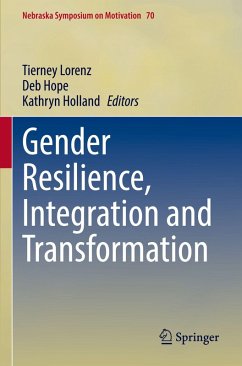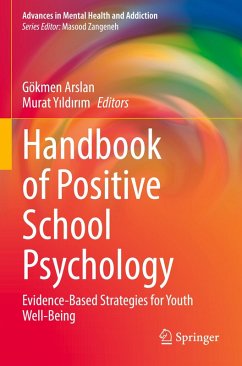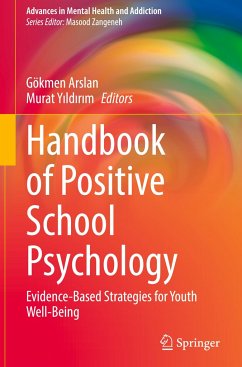
Gender Resilience, Integration and Transformation

PAYBACK Punkte
61 °P sammeln!
There has been a surge in research on gender and sexuality in the last decade, which has predominantly focused on discrimination, dysphoria, and disparities. And much of what we hear in the news about issues relating to gender and sexuality is deeply negative, with seemingly endless attacks on people who are marginalized by their gender and/or sexuality-attacks that are both physical and political. While such issues are extremely important, this one-sided focus casts the experience of minoritized people as intrinsically negative. A deficit model implies the best one can hope for is to avoid ne...
There has been a surge in research on gender and sexuality in the last decade, which has predominantly focused on discrimination, dysphoria, and disparities. And much of what we hear in the news about issues relating to gender and sexuality is deeply negative, with seemingly endless attacks on people who are marginalized by their gender and/or sexuality-attacks that are both physical and political. While such issues are extremely important, this one-sided focus casts the experience of minoritized people as intrinsically negative. A deficit model implies the best one can hope for is to avoid negative outcomes, which limits the possibilities of authentic gender and sexual identity and expression, intimate connection, and personal and professional success. We need more nuanced and methodologically rigorous approaches to understanding resiliency and wellbeing within minoritized groups, including women, queer (e.g., lesbian, gay, bisexual, pansexual, asexual, demisexual), and transgender and gender diverse people. If all we ever hear about the experiences of minoritized people is pain, we diminish the strength of these communities and the richness of their humanity. When we expand our view to include the positive, we reclaim humanity-not to mention, strengthen our science by developing theories and conducting research that address the incredible range of human experience around gender and sexuality. The 70th Annual Nebraska Symposium on Motivation focused on understanding resiliency, joy, pleasure and well-being in women, queer folks and gender-diverse people. In bringing together a diverse international and interdisciplinary group of scholars and scientists, we created a space to explore joy, to break with narratives of deficiency, and honor wellbeing with the same scientific vigor and rigor as we give to pain. The chapters of this volume represent this effort, all centered on the question: What would it look like if your field of study-the study of gender and sexuality-truly centered wellbeing and resilience as the foundation of theory and research?












